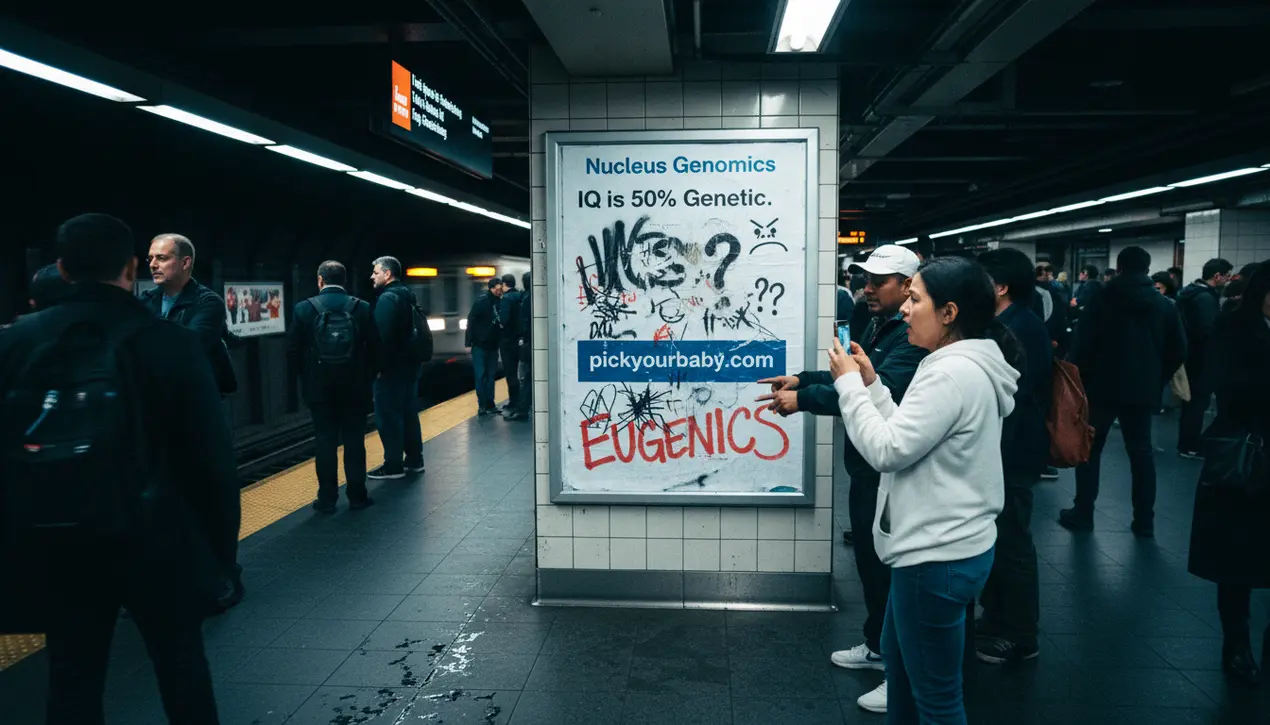
AIai safety & ethicsResponsible AI
The Rise of Rage-Bait: How Brands Are Monetizing Your Outrage
AN
Andrew Blake
4 hours ago7 min read
Ask a random New Yorker about the latest controversial ad campaign in the subway, and you'll likely get a weary, 'Which one?' The city's underground has become a testing ground for a new, deliberately inflammatory marketing playbook designed not for mass appeal, but for visceral reaction. This strategy, known as 'rage-bait marketing,' has moved from social media algorithms to the physical world, with brands strategically leveraging public backlash as a primary engine for growth.The trend ignited with Friend, an AI company that launched a $1 million campaign featuring servile messages from its portable 'companions. ' The ads were swiftly vandalized, a outcome the company's CEO admitted was anticipated and even designed for.Close on its heels, Nucleus Genomics launched its own campaign with ads stating 'Height is 80% genetic' and directing commuters to a website named pickyourbaby. com, drawing inspiration from another ad firestorm earlier in the year.For these companies, polarization is not a bug—it's a feature. Their core products, like AI companions that replace human interaction or services for screening embryos, are inherently divisive.Marketing experts explain the cold calculus: intentionally alienating people who would never become customers costs very little, while simultaneously forging a powerful, loyal bond with a niche target audience. In controversial new categories, leaning into the inherent controversy can be a strategic necessity.The results are striking. Nucleus Genomics reported a 1,700% sales increase and millions of organic impressions following its campaign.In an attention economy where most ads go unnoticed, chief strategy officers argue that brand invisibility is a far greater threat than brand rejection. The online outrage itself becomes a potent megaphone, broadcasting the company's name to millions who would otherwise remain unaware.This new wave of marketing differs from historical shock tactics. While past campaigns attached controversy to an otherwise benign product, for companies like Friend and Nucleus, the most contentious aspects *are* the product.It's a brazen willingness to 'say the quiet part out loud,' a cultural shift that may be influenced by a political climate where the boundaries of discourse are constantly tested. The success of these campaigns signals a new normal, where calculated provocation is becoming a standard marketing tool, especially for technologies that challenge our social and ethical norms. The central question is no longer if a campaign will anger people, but whether that anger can be efficiently converted into profit.
#rage-bait marketing
#controversial advertising
#AI ethics
#brand strategy
#featured
#Nucleus Genomics
#Friend AI
#polarization
Stay Informed. Act Smarter.
Get weekly highlights, major headlines, and expert insights — then put your knowledge to work in our live prediction markets.
Related News
Comments
Loading comments...
© 2025 Outpoll Service LTD. All rights reserved.